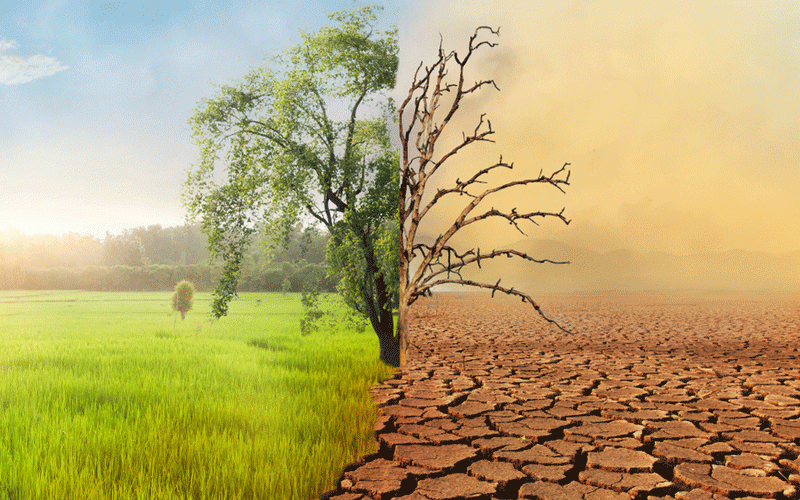
Climate change interventions need to have strong relevance to local levels as sustainable resilient building blocks for strong climate coalitions. Local climate coalitions lay firm foundations for climate advocacy and justice work at community, provincial, national, regional and international levels. Establishing climate coalitions at local level, inclusive of a wide range of sectors and discourse communities is key and the most powerful pathway of engaging societies.
Locally-influenced and initiated coalitions of climate change groups provide the most needed fusion, interface and intersection of community members with a variety of climate backgrounds to share similar goals.
This becomes a critical exercise aimed at establishing a more just and equitable future for all climate change stakeholders, inclusive in all respects.
This anticipation may sound good and the way to go too but it might not be as easy as it may appear due to a number of human centred factors that define human nature.
Coming together and uniting behind the strength of local voices would be essential in transforming lives, situations and aspirations with regards to the type of environment and sustainable living they envisage.
Even at international climate change conferences and conference of parties (COPs), the continent of Africa as a discourse community lacks that compelling and effective voice.
The continent always finds strength in pledges made which are sometimes difficult to be implemented, sometimes due to selective treatment of some countries at the expense of others.
Strong local voices and climate coalitions lead to firm alliances and networks, robust enough to present formidable forces in climate change campaigns. Building a strong network of voices of local climate groups in Zimbabwe does not require extraordinary effort.
- Mavhunga puts DeMbare into Chibuku quarterfinals
- Bulls to charge into Zimbabwe gold stocks
- Ndiraya concerned as goals dry up
- Letters: How solar power is transforming African farms
Keep Reading
What is only needed is reaching out to one another while at the same time recognising intrinsic values of one another.
The purpose of climate advocacy, locally initiated, is not about confrontation with authorities, but building a network of voices strong and powerful enough to challenge those in power and influence policy.
The idea is to build strong local institutions in order to promote social and climate justice systems.
Real resilience, which is meaningful and transformative, cannot be achieved by investing in loose networks and coalitions which are splintered, disintegrated and in disarray.
What we are witnessing at the moment are sporadic and scattered voices where individuals, organisations and institutions try to outdo one another while playing to the gallery, leaving real climate concerns unresolved.
Strong community voices are not only for being assertive and proactive, but they are supposed to nurture strong relations, trust, commitment and collaborations.
In unison, these would contribute to national, regional and global voices culminating in real and meaningful international climate coalitions reminiscent of those that are found at COPs.
Lack of serious, strong, networked and amplified voices from the Global South always points to manipulation of representatives by a clique of powerful polluting actors.
Many developing countries are missing out on opportunities to establish sustainable climate coalitions at home as a result of self-interests, mistrust, nepotism, corruption and holier than thou attitudes.
Strong climate coalitions have potential to contribute to the realisation of sustainable development goals (SDGs): SDG16 (peace, justice and strong institutions) complemented by SDG17 (partnerships for the goals) and of course not forgetting SDG13 (climate action), including SDG10 (reduced inequalities), all integrated.
Strong climate coalitions are borne out of local community partnerships, city to city collaborations, organisational synergies and impartial regulating climate authorities whose competencies are key and transformative.
When dealing with issues of equity, fairness and climate justice in all forms, strong climate coalitions provide the most needed direction and guidance.
Many developing countries have suffered more than enough environmental injustices and continue to do so because they lack strong climate coalitions and meaningful partnerships, with the potential of providing better results.
These climate coalitions also need protection from the law to ensure their smooth operations.
Climate coalitions in many countries including the African continent face operational obstacles because they cannot work together as true and progressive allies.
Sometimes, this is mainly due to attitude, lack of commitment or financial resources.
Allies from developing countries especially in Africa, have deep suspicions and mistrust due to the ghost of former colonial masters where being Anglo, Franco or Lusophone becomes the deciding factor or standpoint.
This also includes the geopolitical positioning of countries, east, west, north, central and southern Africa becoming a deciding factor.
All these militate against the sustainable gelling and delivery of the required outcomes, deliverables and climate justice.
If climate coalitions cannot respect or value one another, then external stakeholders will not respect but manipulate them.
Peter Makwanya is a climate change communicator. He writes in his personal capacity and can be contacted on: petrovmoyt@gmail.com.










